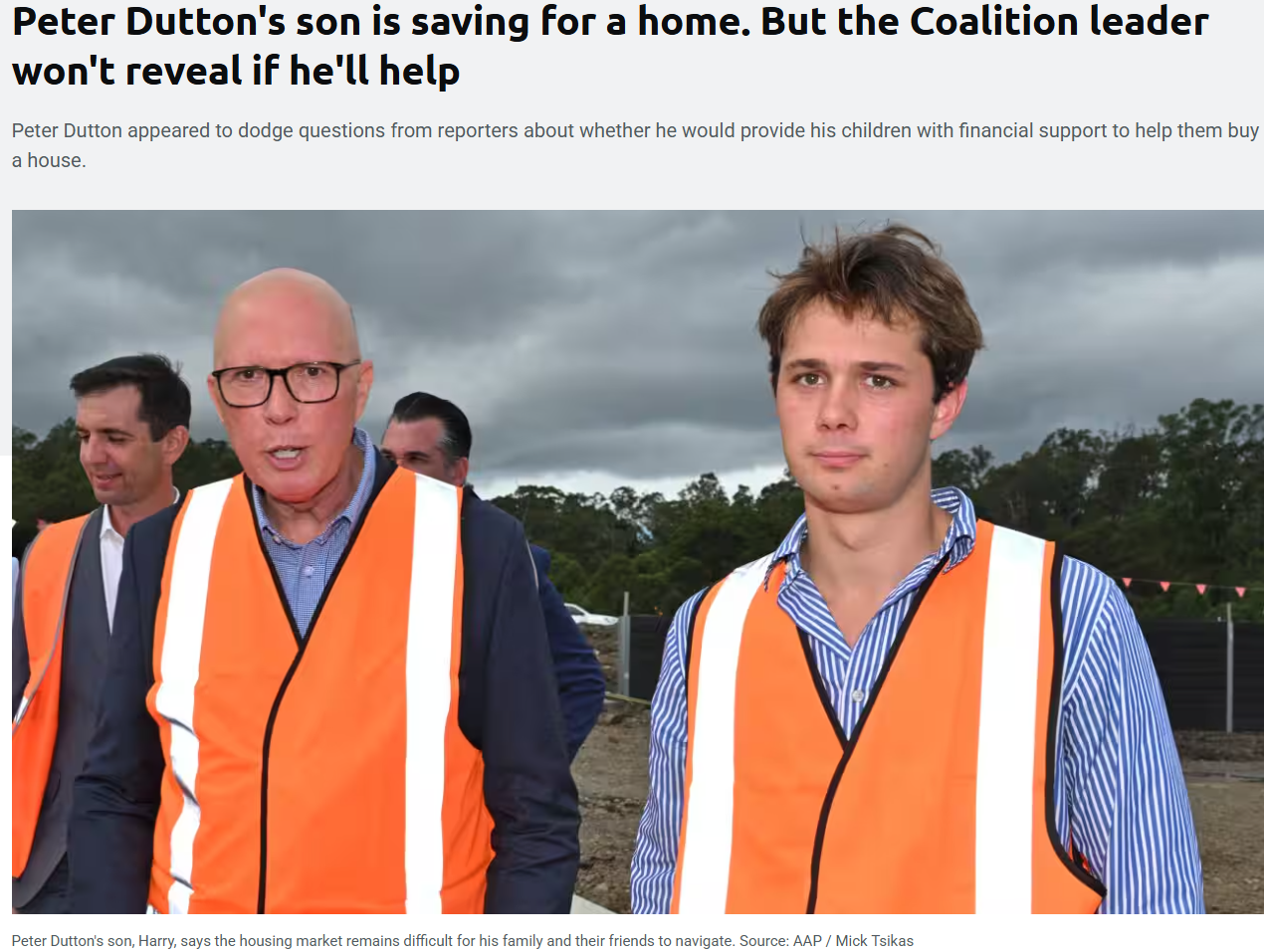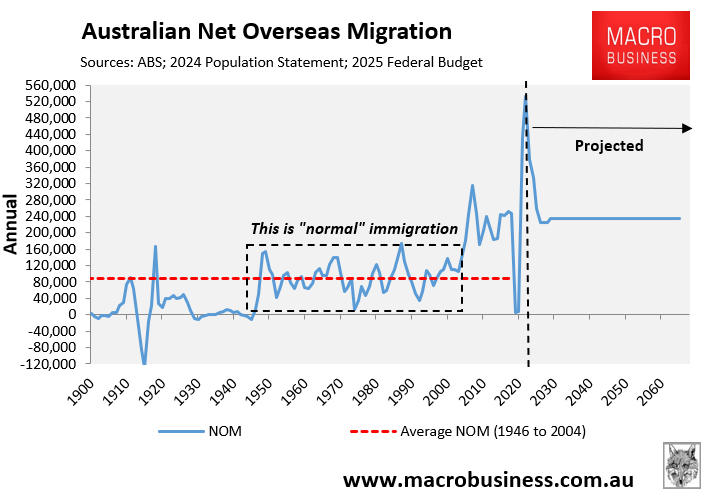Late last year, I attacked Labor housing minister Clare O’Neil for stating that Labor wanted house prices to rise at a “sustainable” rate.
There you have it.
The Albanese government does not want housing prices to fall at all.
Source: https://t.co/EmndvZlkhg pic.twitter.com/ZDqYVsvU13
— Tarric Brooker aka Avid Commentator 🇦🇺 (@AvidCommentator) December 10, 2024
On Monday, Opposition leader Peter Dutton repeated the line, saying that the Coalition wants to see house prices “steadily increase”.
When asked on Monday if he wanted house prices to go up or down, Mr Dutton replied: “I want to see them steadily increase”.
“I don’t want to see a situation where Labor crashes the economy and somebody who’s paid $750,000 for a house today is worth $600,000 in 18 months’ time under an Albanese government”.
“That would be a disaster”.
“People will be sitting on a house that is worth less than what their mortgage is”.
Peter Dutton then wheeled out his 20-year old son, Harry, who complained that his generation cannot afford to buy a house.

“I’m saving up for a house and so is my sister and a lot of my mates but it’s almost impossible to get in the current state”, Harry Dutton told reporters on Monday.
“We’re saving like mad but it doesn’t look much better in the near future”.
Asked directly on Monday if he wanted house prices to drop, Prime Minister Anthony Albanese said: “Look, historically in Australia … prices tend to rise”.
“What we want to do is to make sure that people have accessibility for home ownership”.
If you have ever wondered why Australia’s politicians continually implement self-defeating policies like home buyer subsidies, mortgage subsidies, tax breaks, and other demand-side measures, look no further than the above comments from Labor and the Coalition.
Neither side genuinely wants to “solve” the housing affordability crisis because that would require prices and rents to fall.
So, they continue to pretend to care about affordability while they introduce ever more elaborate schemes to drive prices higher.
Meanwhile, they refuse to implement the one policy that would lower rents and home prices without costing the taxpayer a cent: slashing immigration to below 120,000 a year.

Slashing immigration would have a profound impact on the housing market.
First, it would solve the housing shortage because supply would quickly catch up with demand.
Second, it would lower rents, which would benefit tenants directly. First home buyers would also benefit from lower rents, as it would make it easier to save for a deposit.
Third, lower immigration would put some downward pressure on prices, making it easier to buy.
Fourth, lower immigration would not cost taxpayers a cent, unlike the demand-side policies promised by both sides over the weekend.
Finally, lower immigration would also prevent our cities from becoming overcrowded and prevent future Australians from having to live in high-rise shoebox apartments.
Sadly, neither side will act in the best interests of Australians. The one thing they agree on is the need to drive home prices higher.

